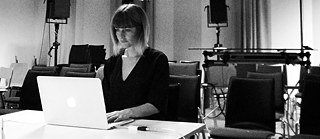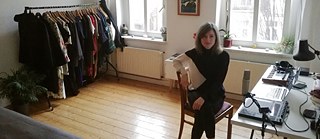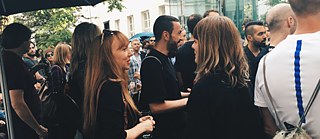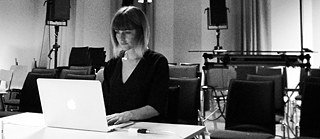Amy Jean Barnett
From Poneke to Bauhaus

In 2016 I moved to Weimar, a small city with big connections to German history. In addition to being the namesake of the interwar republic, Weimar was once the beloved locale of the 18th and 19th century intelligentsia (think Goethe, Schiller, Nietzsche, Liszt...). It later became the scene where the modernists of the 20th century gave rise to a new movement in art at Bauhaus. Weimar is also a monument to the darker side of Germany’s past with traces of the Nazi regime left behind in state buildings, as well as the presence of Buchenwald concentration camp near the city.
I moved to Weimar from London, following study in New Zealand, to take up postgraduate study at Bauhaus University. I had considered a Masters for some time and applied to Bauhaus because of its unique interdisciplinary media art program which included access to an electroacoustic music facility at the Franz Liszt Hochschule für Musik. It seemed a good fit given my interest in emerging technologies (in relation to new art practices), as well as my background in computer music and sonic arts. Central to the school’s philosophy is the Bauhaus ideology of the gesamtkunstwerk – ‘total work of art’ – emphasising the synthesis of different mediums.
At Bauhaus I’ve designed responsive audio for motion capture at the The Digital Bauhaus Lab with a team of 3D animators, I’ve composed multi-channel sound works for the 48 channel loudspeaker orchestra, and I’m currently experimenting with sound environments for virtual reality. I’ve also taken creative coding modules as well as DIY electronics labs, and there are always additional workshops and talks throughout the semester from visiting artists and professors. IKKM Bauhaus fellow and distinguished philosopher Rosi Braidotti recently gave a highly informative talk on her discourse around posthumanism and in 2017 the studio saw a visit from prolific electroacoustic music composer Francis Dhomont.
Audio: spectra_ephemera (pt. II), Amy Jean Barnett (Composer)
spectra_ephemera (pt. II)Weimar, though small, is also an incubator for cross-disciplinary collaborative projects, extending well beyond the university with there are concerts in repurposed industrial and outdoor spaces. it is also home to the mysteriously infamous German record label Giegling.
Audio: Kettenkarussell, Gate
The proximity of Germany to other major European centres and institutions is what makes these kinds of experiences possible and is one of the main reasons I chose to come here. It must also be noted that tuition is free in Germany, even for non-EU nationals, and Germany’s relative affordability (in some centres) makes it an ideal place for foreign students escaping inflated education costs elsewhere.


Video: ZKM, next_generation 7.0, Open Panel Discussion
Open Panel Discussion